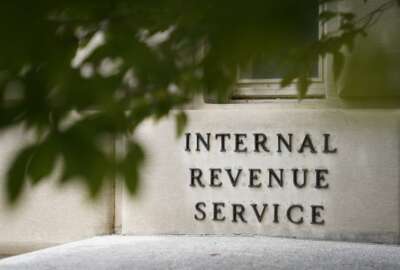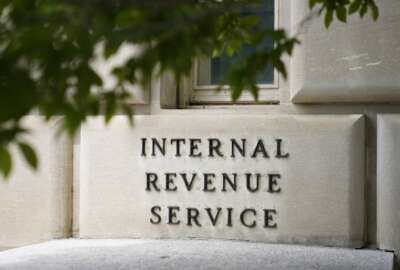IRS tells Congress to avoid ‘disruptive’ government shutdown ahead of tax filing season
IRS Commissioner Danny Werfel told reporters on Thursday that a potential government shutdown wouldn’t keep the agency from starting the tax filing season on Jan.
The IRS is calling on Congress to avert a partial government shutdown to avoid any disruption to the start of this year’s tax filing season.
IRS Commissioner Danny Werfel told reporters on Thursday that a potential government shutdown wouldn’t keep the agency from starting the tax filing season on Jan. 29, as planned.
Under the current “laddered” continuing resolution, funding for some agencies will run out on Jan. 19. The IRS and other agencies are funded through Feb. 2.
But Werfel said a lapse in funding would “increase the risk that we don’t have as smooth a filing season as we intend to have.”
”We have experienced shutdowns before. We have not experienced shutdown in the middle of filing season, so there’s some uncertainty there,” he said.
Werfel said IRS preparations for the filing season are exempt from a lapse in funding, and that the agency will “carve out elements that will allow us to maintain operations.”
“Of course, we will do everything in our power to minimize the disruptions that a shutdown would have on filing season,” he said. “But as many of us have experienced who’ve been through government shutdowns before, if you’re outside the government looking, it can be very disruptive and very chaotic.”
Congress is looking to pass a comprehensive spending bill for the rest of the fiscal year.
However, House Speaker Mike Johnson (R-La.) is facing pressure from some Republican lawmakers for not pushing for more aggressive spending cuts.
The House removed former House Speaker Kevin McCarthy (R-Calif.) from the top job last October over similar disagreements over spending.
McCarthy also reached a deal with Democrats to pass a continuing resolution and avoid a government shutdown.
In the event of a government shutdown, some federal employees at affected agencies will be furloughed, while others will be required to continue working without pay.
Under the Government Employee Fair Treatment Act, both furloughed and excepted federal employees receive retroactive pay once a shutdown ends.
The National Treasury Employees Union, in a letter sent Wednesday, urged congressional leaders to avoid a government shutdown.
“A government shutdown would be disastrous for the country,” NTEU National President Doreen Greenwald wrote.
Greenwald said a 35-day shutdown in 2019 led to more than 800,000 federal employees not getting two of their paychecks on time, “and denied critical government services to the American people.
Congressional leaders, as part of a tentative spending deal earlier this week, agreed to speed up the timeline for a $20 billion cut to IRS funding in the Inflation Reduction Act.
Congress already agreed to roll back the IRS funding as part of debt ceiling negotiations last year. Under that deal, however, lawmakers planned on eliminating $10 billion in IRS funding this year, and another $10 billion next year.
Werfel said the cuts to Inflation Reduction Act funding will have no immediate impact on IRS modernization plans.
“The concern about the budget would be in the later years. My hope is that as we demonstrate the positive impact that IRA funding is having for all taxpayers, that there will be a need and a desire amongst policymakers at that time to restore IRS funding, so that we can continue the momentum that’s having a very positive impact,” Werfel said.
The IRS, by tapping into Inflation Reduction Act funds, answered more calls and provided help to taxpayers at levels not seen since the start of the COVID-19 pandemic.
The IRS this year is looking to offer 8,000 more hours of in-person tax help through its Taxpayer Assistance Centers across the country.
The agency used Inflation Reduction Act funds to open or reopen 54 Taxpayer Assistance Centers across the country. As of last December, it also brought on more than 850 new TAC employees.
“It’s clear Inflation Reduction Act funding is making a difference for taxpayers. And we will build on these improvements in the months ahead,” Werfel said.
The agency is also using those funds to rebuild its depleted workforce, modernize its legacy systems and ramp up its enforcement of high-income earners.
Since last fall, the IRS has collected about $520 million in taxes owed. Most of the money stems from 900 cases of millionaires failing to pay their full tax obligation.
The IRS has identified 1,600 total cases where millionaires haven’t paid what they owe, and has assigned the cases to its revenue offices for collection.
“We’re taking swift and aggressive action to ensure high-income taxpayers pay the taxes they owe,” Werfel said.
Copyright © 2025 Federal News Network. All rights reserved. This website is not intended for users located within the European Economic Area.
Jory Heckman is a reporter at Federal News Network covering U.S. Postal Service, IRS, big data and technology issues.
Follow @jheckmanWFED






